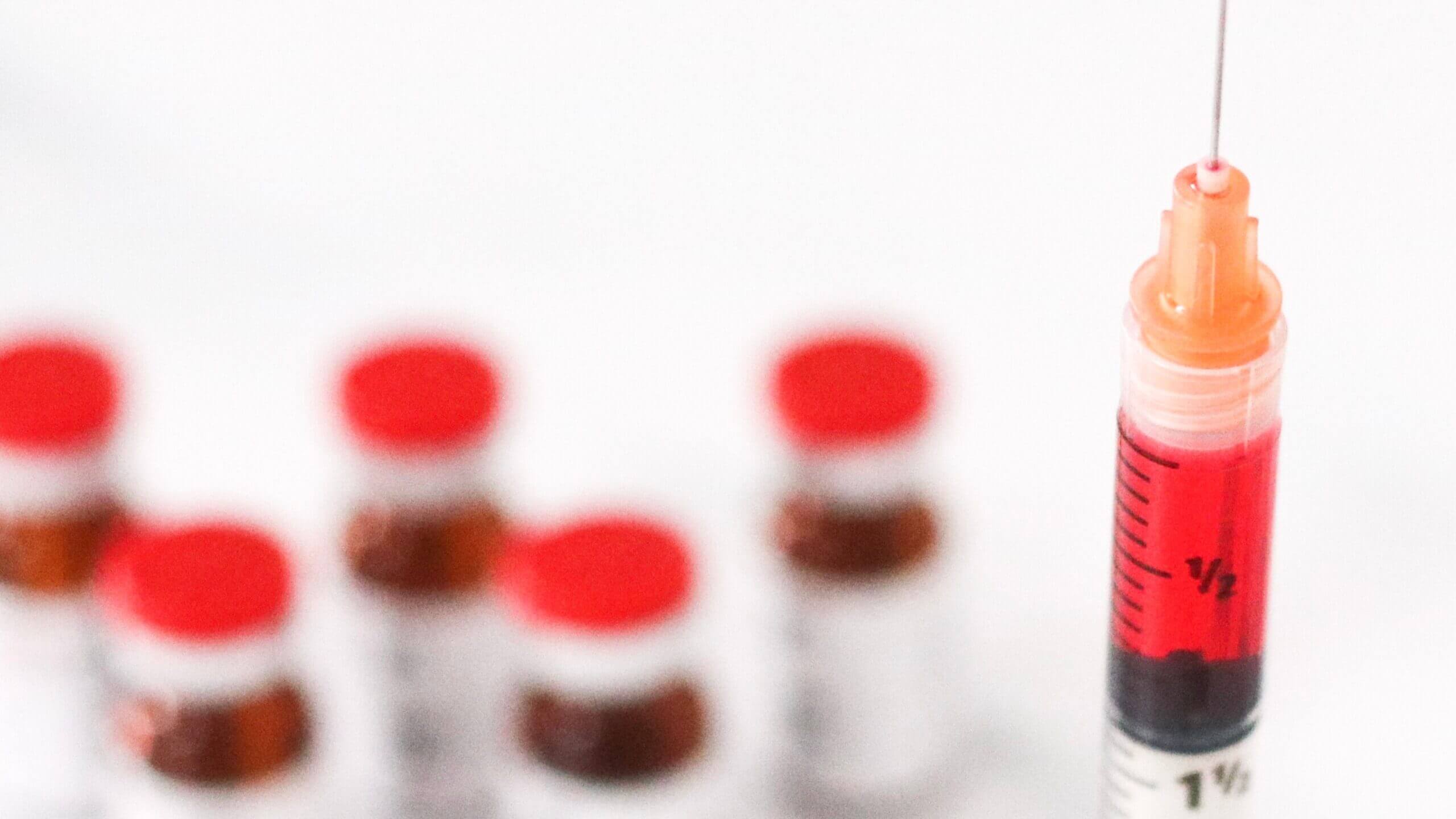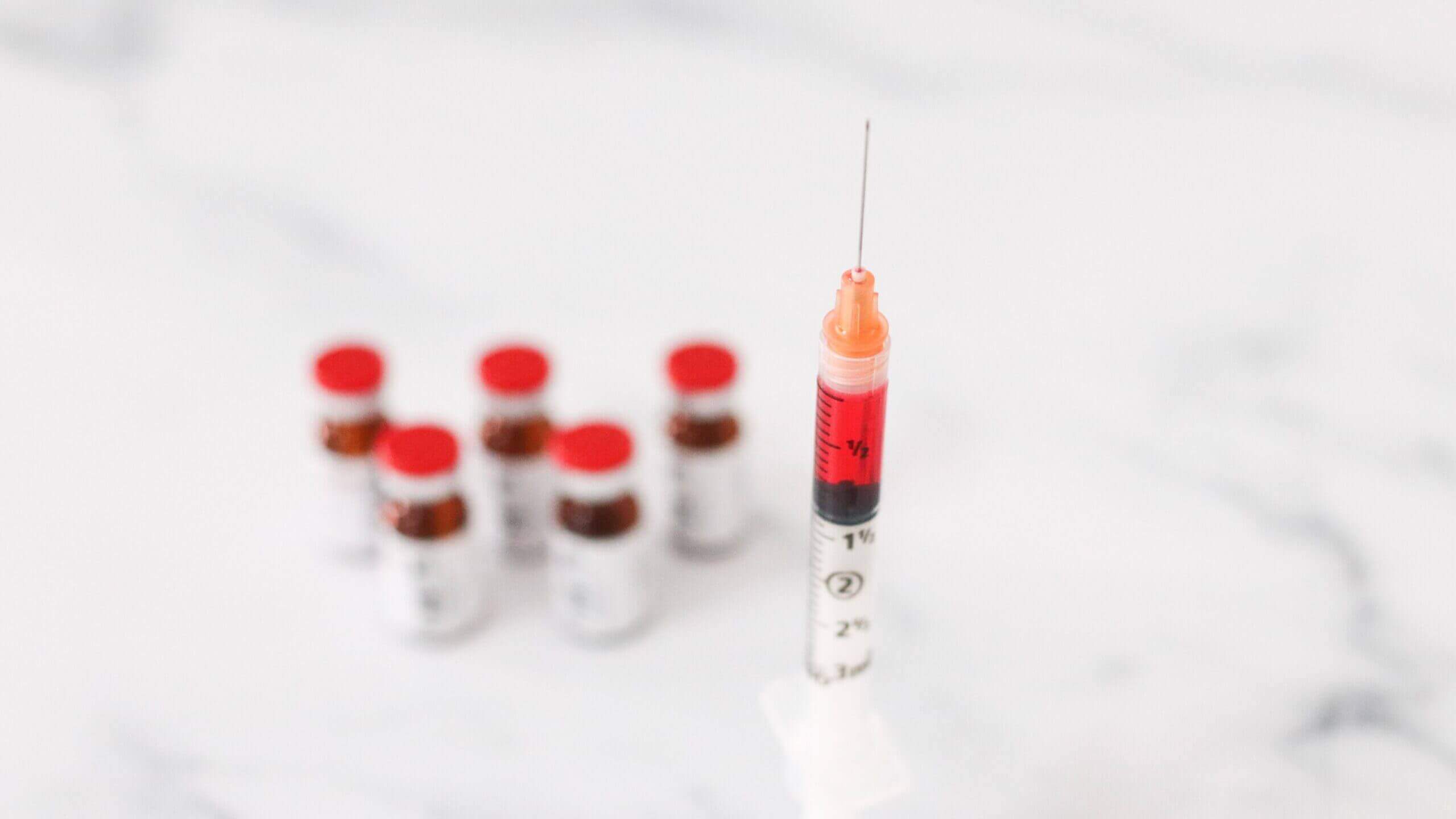How to Treat Your Clients’ Tiredness: Vitamin B12 and its Benefits
-
By: Adam Diwan
-
January 22, 2024
Many individuals suffer from tiredness due to work, stress, illness, medications, or lifestyle choices. Tiredness can lead to fatigue and other symptoms, putting people at risk of accidents or being out of work.
A lack of vitamin B12 and tiredness are connected, so healthcare professionals must find out how to ensure they can effectively treat clients.
Learn the benefits of vitamin B12, how it can alleviate tiredness for your clients, and more so that you’re well informed before you incorporate vitamin injections into your clinic.
Understanding Tiredness in Clients

Tiredness is a complex condition influenced by physical and mental factors.
Physical exhaustion often results from demanding activities, such as vigorous exercise or manual labour, which deplete the body’s energy resources.
On the other hand, extended periods of cognitive tasks or exposure to stress can induce mental tiredness, diminishing overall alertness and performance.
A significant contributor to fatigue is the quality and duration of sleep. Insufficient or poor-quality sleep disrupts the body’s vital processes, adversely affecting physical and mental well-being and impairing daily functioning.
In some cases, individuals may grapple with Chronic Fatigue Syndrome (CFS), a condition characterised by persistent and unexplained fatigue that persists even after rest.
While there is no known cure for CFS, some individuals find relief through the supplementation of vitamin B12.
The Role of Vitamin B12

Vitamin B12, or cobalamin, is a water-soluble vitamin crucial for the proper functioning of various physiological processes.
Unlike some vitamins, B12 is not synthesised by the body and must be obtained through dietary sources or supplements.
Playing a central role in the metabolism of proteins and fats, B12 contributes significantly to energy production and supports DNA synthesis.
Moreover, it is indispensable for forming red blood cells and properly functioning the nervous system. A deficiency in B12 can result in anaemia, characterised by a shortage of red blood cells, leading to weakness and exhaustion in affected individuals. The following section will further explore how a lack of vitamin B12 can affect its role, leading to tiredness.
Recognisable signs of a B12 deficiency often include pale skin and dry lips.
Sources of this essential vitamin are primarily found in animal products, including meat, fish, milk, and eggs.
However, B12 absorption depends on intrinsic factors in the stomach, and individuals with dietary restrictions or certain health conditions may struggle to obtain sufficient amounts through food alone. In such cases, supplementation, such as hydroxocobalamin 1mg, becomes crucial to prevent and address B12 deficiency.
Benefits of Vitamin B12 for Tiredness

Vitamin B12 injections benefit many individuals for various reasons.
Vitamin B12 is essential to combat tiredness due to its integral role in various physiological processes.
Its involvement in the metabolism of proteins and fats contributes significantly to energy production, making adequate B12 levels crucial for alleviating fatigue.
As mentioned, B12 is essential for synthesising red blood cells, pivotal in transporting oxygen throughout the body. A well-oxygenated system is vital for sustained energy levels, and proper red blood cell formation can alleviate feelings of tiredness and weakness.
Moreover, Vitamin B12 is necessary for the proper functioning of the nervous system. It aids in maintaining nerve cells and producing myelin, a protective sheath around nerves. This support contributes to improved physical stamina and enhanced mental alertness, potentially reducing mental fatigue.
Lastly, vitamin b12 benefits the skin by promoting cell growth, helping to reduce signs of ageing.
Administering Vitamin B12

Administering Vitamin B12 to your clients involves a comprehensive evaluation of their medical history, nutritional status, and symptoms to determine the need for supplementation.
For severe cases, opt for intramuscular injections to deliver B12 directly into your client’s muscle tissue, typically in the upper arm or thigh, ensuring rapid absorption into the bloodstream.
Choose subcutaneous injections, an alternative for those opposed to intramuscular injections, to deliver B12 into the fatty tissue beneath the skin, allowing for direct absorption.
Regular follow-up assessments are crucial, as is adjusting dosage or administration based on your client’s progress.
Ensure you have a range of needles within your clinic to be appropriately equipped for the treatments you offer. When administering vitamin B12, use a 1 to 1.5-inch needle for intramuscular injections and opt for a gauge between 22 and 25.
Potential Side Effects and Considerations

While vitamin B12 supplementation is generally well-tolerated, your clients may experience some common side effects, which are as follows:
- Itching
- Redness
- Swelling
- Headaches
- Dizziness
However, in more severe cases, individuals might encounter symptoms like:
- Swelling of hands, ankles, or feet
- Difficulty breathing
- Allergic reactions, i.e. itching, skin rash, etc
- Diarrhoea
Your clients must be vigilant about adverse effects and seek immediate medical attention if severe symptoms persist or common symptoms become concerning.
To optimise results and minimise potential side effects, advise your clients to abstain from smoking and limit alcohol intake during B12 supplementation. These lifestyle adjustments contribute to a more favourable response to B12 treatment, ensuring the individual’s well-being throughout the supplementation period.
Integrating Vitamin B12 Treatments in Your Practice
Integrating vitamin B12 injections into your clinic provides a valuable and non-invasive solution for clients grappling with fatigue, a common concern for many individuals.
By incorporating high-quality products from trusted providers like Revolve Medicare, you can ensure the efficacy and safety of your supplementation.
Contact Revolve Medicare if you have any questions regarding our products, and ensure you are well-informed before offering treatment to your clients.
Related Posts
-
By: Adam Diwan
-
September 23, 2024
How to Start an Aesthetics Business
-
By: Adam Diwan
-
September 23, 2024
Top 5 Fat-Dissolving Products to Use in Your Clinic
-
By: Adam Diwan
-
July 23, 2024
Top 10 Vitamin Injections for Health and Beauty
-
By: Adam Diwan
-
July 2, 2024
How to Switch from Saxenda to Mounjaro
-
By: Adam Diwan
-
June 25, 2024
Mesotherapy vs Microneedling: A Side Effect Guide
-
By: Adam Diwan
-
June 18, 2024











